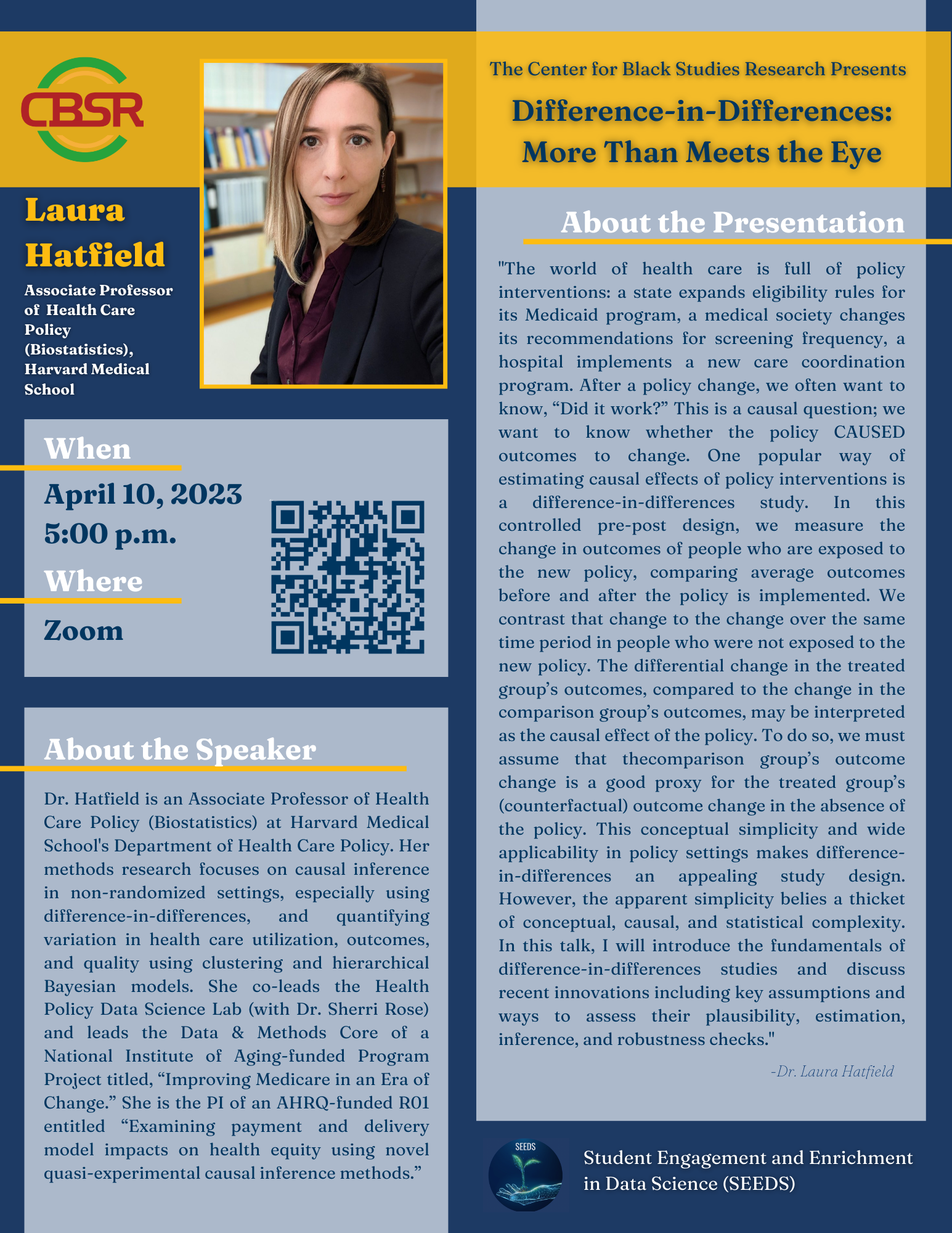
About the Presentation
"The world of health care is full of policy interventions: a state expands eligibility rules for its Medicaid program, a medical society changes its recommendations for screening frequency, a hospital implements a new care coordination program. After a policy change, we often want to know, “Did it work?” This is a causal question; we want to know whether the policy CAUSED outcomes to change. One popular way of estimating causal effects of policy interventions is a difference-in-differences study. In this controlled pre-post design, we measure the change in outcomes of people who are exposed to the new policy, comparing average outcomes before and after the policy is implemented. We contrast that change to the change over the same time period in people who were not exposed to the new policy. The differential change in the treated group’s outcomes, compared to the change in the comparison group’s outcomes, may be interpreted as the causal effect of the policy. To do so, we must assume that thecomparison group’s outcome change is a good proxy for the treated group’s (counterfactual) outcome change in the absence of the policy. This conceptual simplicity and wide applicability in policy settings makes difference- in-differences an appealing study design. However, the apparent simplicity belies a thicket of conceptual, causal, and statistical complexity. In this talk, I will introduce the fundamentals of difference-in-differences studies and discuss recent innovations including key assumptions and ways to assess their plausibility, estimation, inference, and robustness checks."
-Dr. Laura Hatfield
About the Speaker
Dr. Hatfield is an Associate Professor of Health Care Policy (Biostatistics) at Harvard Medical School's Department of Health Care Policy. Her methods research focuses on causal inference in non-randomized settings, especially using difference-in-differences, and quantifying variation in health care utilization, outcomes, and quality using clustering and hierarchical Bayesian models. She co-leads the Health Policy Data Science Lab (with Dr. Sherri Rose) and leads the Data & Methods Core of a National Institute of Aging-funded Program Project titled, “Improving Medicare in an Era of Change.” She is the PI of an AHRQ-funded R01 entitled “Examining payment and delivery model impacts on health equity using novel quasi-experimental causal inference methods.”